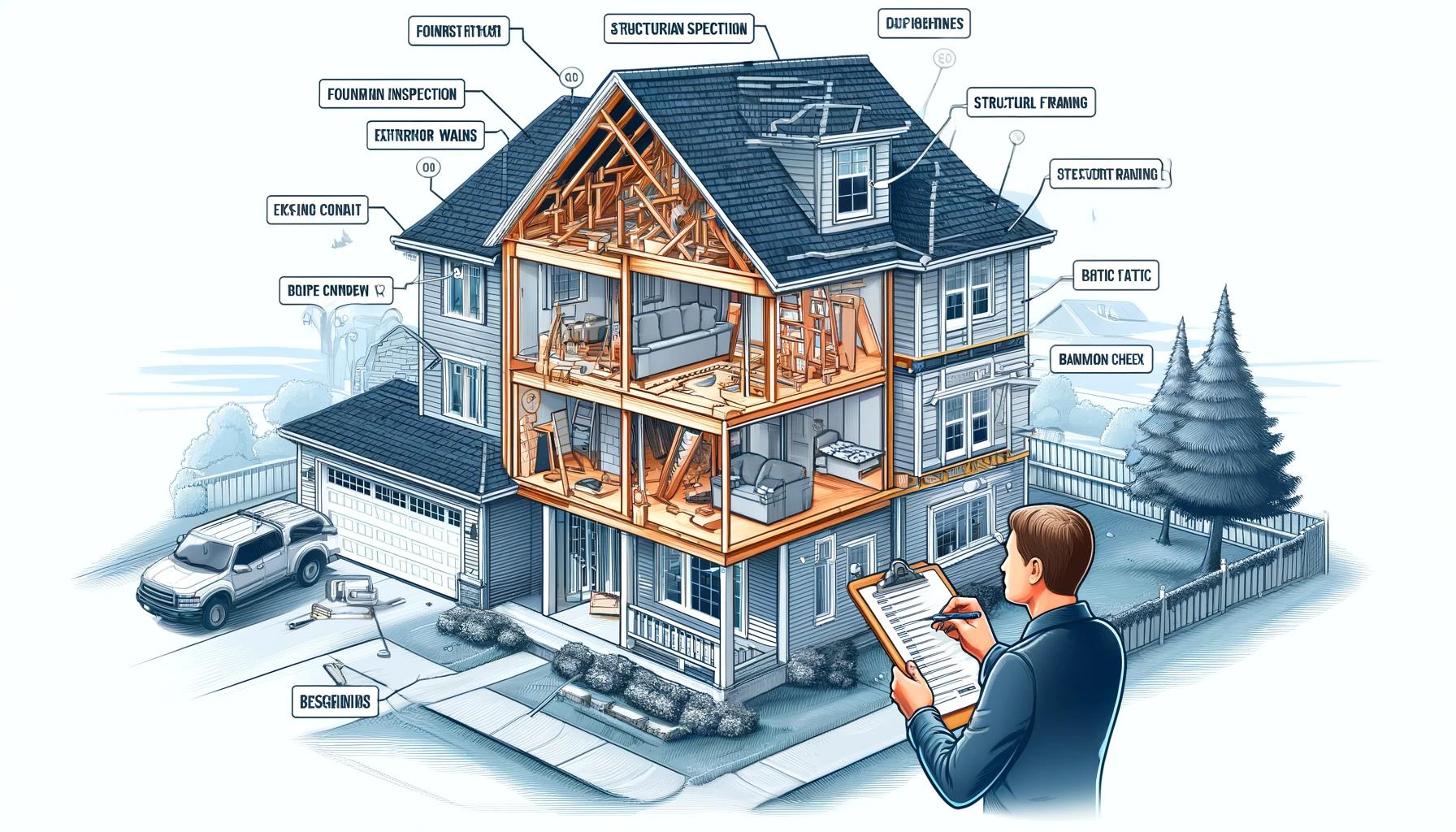Buying a house is a significant investment and an exciting milestone. However, it’s essential to ensure that your potential new home is structurally sound and safe. As a structural engineer, I’ve encountered various issues that buyers should be aware of before making a purchase. Here are some expert tips to help you navigate the house buying process with confidence.
1. Inspect the Foundation
- Cracks and Settling: Look for cracks in the foundation walls and uneven floors, which may indicate settling or structural damage.
- Water Damage: Check for signs of water infiltration in the basement or crawl space, as this can weaken the foundation over time.
2. Assess the Roof Condition
- Age of the Roof: Find out when the roof was last replaced. Most roofs last 20-30 years, depending on the materials used.
- Leaks and Sagging: Look for water stains on ceilings and walls, which could indicate a leaking roof. Sagging areas might suggest structural issues.
3. Examine the Structural Framing
- Visible Damage: Inspect exposed beams, joists, and rafters for signs of rot, termite damage, or cracks.
- Load-Bearing Walls: Ensure that any renovations or modifications have not compromised load-bearing walls, which are crucial for structural integrity.
4. Check the Exterior Walls
- Cracks and Gaps: Cracks in brick, stucco, or siding can indicate movement or settling. Gaps around windows and doors might suggest shifting or poor construction.
- Moisture Issues: Look for signs of moisture damage, such as peeling paint, mold, or mildew on exterior walls.
5. Investigate the Basement and Crawl Space
- Moisture Levels: A damp or musty smell can indicate high moisture levels, which may lead to mold growth and structural damage.
- Foundation Stability: Check for bowing or leaning walls, which can signal serious foundation problems.
6. Evaluate the Attic and Insulation
- Ventilation: Proper ventilation in the attic is essential to prevent moisture buildup and prolong the life of the roof.
- Insulation Quality: Adequate insulation helps with energy efficiency and prevents structural issues caused by temperature fluctuations.
7. Review Previous Inspection Reports
- Past Repairs: Look for documentation of past repairs or renovations. Ensure that they were done by qualified professionals and that any issues were fully resolved.
- Recurring Problems: Be cautious of homes with recurring structural issues, as these may indicate underlying problems that could be costly to fix.
8. Consider Professional Help
- Hire a Structural Engineer: For peace of mind, hire a structural engineer to conduct a thorough inspection of the property. They can identify potential problems that may not be visible to the untrained eye.
- Consult with Specialists: Depending on the findings, you might need to consult other specialists, such as roofers, electricians, or plumbers, to address specific concerns.
By following these tips and conducting a comprehensive inspection, you can avoid potential pitfalls and ensure that your new home is a sound investment. Remember, taking the time to assess the structural integrity of a property can save you from costly repairs and provide peace of mind in your new home.
